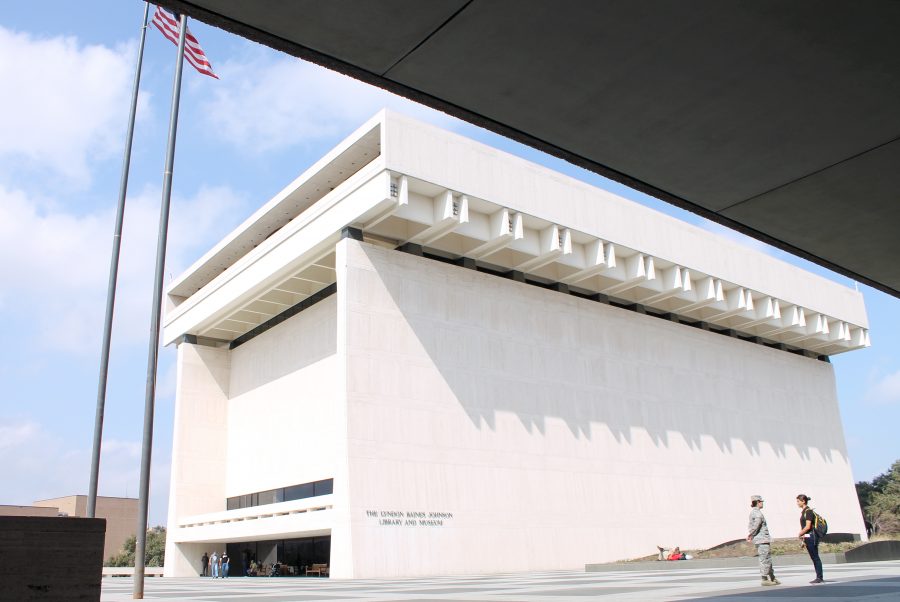When I heard about the Civil Rights Summit happening this week, I was floored. Four presidents would be making their way to our campus to celebrate the end of a systemically racist era. Personal heroes such as Graham Nash, San Antonio Mayor Julian Castro and Bob Schieffer were slated to speak. The entire summit would be live streamed for those who weren’t able to attend. Open, honest dialogue would be coming to the 40 Acres. A history plagued with racial discrimination and prejudice would be dusted off, scrutinized and aired out. A past that, for some, has occluded our present for too long.
A few years ago, I sat with some of my co-workers behind the desk at Kinsolving Residence Hall, thumbing through old handbooks. I made it all the way back to one given out to the female residents in the 1950s. Initially, I found it adorable: a transportive device back to a long, long time ago. But there was an etiquette section in the back that promptly brought me back to reality.
It directed young ladies not to talk, gesture or acknowledge the “Negro attendants.” When I looked around, I saw my black, white, Asian and Latino co-workers. I was dismayed that the majority of us wouldn’t have been allowed the title of “Longhorn” just a few decades ago. I shuddered to think the words I would have been called, the gestures that would have been made in my direction, or the threats lobbed at me had I stepped on campus during integration.
The more I thought about it, the more I returned to similar encounters I had with our school’s past. As a prospective student at a Longhorn Saturday, I remember staring up at the Jefferson Davis statue for the first time. Looming above me, it reminded me of the historical place into which I’d been forced as a black woman. I thought about the literal freedom generations of my family had been denied. It was infuriating.
The first time I heard the “Eyes of Texas” it was from the black majority Innervision Gospel Choir at the. To me, I could see the pride and acknowledgement of the irony reflected in their eyes. They stood in front of the Tower, right below the engraved inscription of “The truth shall set you free,” but, as poet T.S. Eliot once said, “Humankind cannot bear very much reality.”
The truth is that this summit is welcome, but, so long as the celebration, dialogue and inclusivity remains at the top, change cannot and will not happen at the base camp, with us, the student body.
Many of the students I’ve spoken to were unaware of the fact that there was a summit. The ones that were are a dedicated few. It saddens me that climate of malignant opposition has evolved into palpable indifference. Gone are the days of a binary student population. We have more than 100 nations represented among our students but still very little cross-cultural interaction or engagement. I understand the historical importance of black business, Southeast Asian, Christian and Latino greek organizations, but I also understand the historical detriment of not fostering places for groups to truly interact with another. The product of which is written in every history book, fear, hate, and further discrimination.
When we only learn to listen to our own voices, we’re not advancing. We’re not progressing. We’re milling about in our poison. If we want to move forward and truly be the change we wish to see in the world, we’re going to have to listen to one another.
I’m excited for the dialogue that’s happening up on the hill this week. I just hope that it spills down to the rest of us.
Maney is a journalism senior.





















